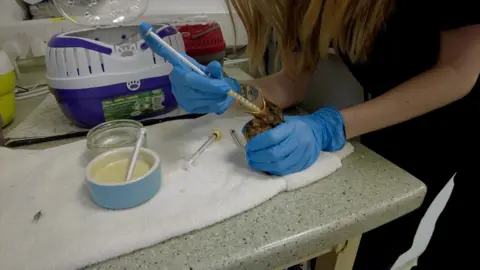### Global Issues Impacting Charitable Efforts in the Channel Islands
Charities across the Channel Islands are grappling with significant financial uncertainties exacerbated by global issues beyond their control. The intersection of a cost-of-living crisis, geopolitical instability, and shifting donor habits — highlighted by Donald Trump’s second-term policies — is causing major setbacks for local organizations attempting to navigate these turbulent waters.
According to Robert Surcouf, the deputy chair of the Association of Jersey Charities (AJC), local charities must remain agile and adaptive to survive in this climate. Surcouf emphasized that local organizations should be prepared for unexpected repercussions from international events, underscoring how decisions made within the White House can resonate far beyond U.S. borders. He stated, “Something that comes out of the White House can have huge impacts here,” and the uncertainty is further compounded by economic pressures from the ongoing effects of the pandemic.
Financial strain on charities has been intensified by a competitive fundraising landscape. Charities are feeling the squeeze, particularly in light of inflation and the careful spending habits of potential donors. Surcouf outlined that this year has proved challenging, and there seems to be little relief anticipated in the near future. This sentiment was echoed by various charity leaders throughout the channel, stressing the need for organizations to adapt quickly in response to economic instabilities.
### The Struggles of Channel Islands Air Search (CIAS)
One notable charity facing these financial challenges is the Channel Islands Air Search (CIAS) based in Guernsey. Serving as a vital “eyes in the sky” operation for lifeboats throughout the islands, CIAS’s operational costs surpass £2,500 per hour, equating to approximately £300,000 each year without accounting for additional expenses. Trustee Gareth Le Page revealed that, alongside these demanding costs, the charity requires an extra £70,000 this year to update the software systems of its aircraft.
The shift in corporate responsibility towards more environmentally-focused or health-related projects has left CIAS reliant on unpredictable external events as it struggles to secure adequate funding. Le Page candidly noted, “We’re in the hands of outside events – and outside events are challenging,” indicating that the international climate continues to impact their financial health.
### The “Trump Effect”
The influence of international donor attitudes, particularly those swayed by U.S. policies under former President Trump, is also affecting charitable funding in the Channel Islands. Le Page noted, “If Trump’s saying: ‘Don’t support this,’ they’re not supporting,” which significantly affects charities trying to raise funds amidst shifting political landscapes. Surcouf highlighted the potential “butterfly effect” of U.S. policy changes resounding around the globe. He admitted that “the charitable giving landscape in America is evolving,” which could have implications across the pond.
As Trump implements new tariffs and controversial international policies, local charities are left to contend with the repercussions. Recent changes have removed tax incentives that previously promoted charitable donations from wealthy individuals and corporations, which could potentially lead to an estimated reduction of around $7 billion in donations over the next decade, according to the National Council for Nonprofits.
### Tough Times for JSPCA
Another charity feeling the pinch is the JSPCA, responsible for the welfare of animals, which attributes its funding difficulties to a mix of economic factors and changing donor strategies. Chief executive Pam Aubert expressed the need for the organization to become smarter in showcasing their value to potential donors in an increasingly competitive environment. With operating costs ranging from £1.2 million to £1.4 million annually, she stressed the urgent need for charities to innovate their fundraising strategies.
The current climate portrays a sobering picture of the charitable sector within the Channel Islands. As they confront global challenges, local charities require community support now more than ever, yet the level of that support remains uncertain amidst shifting economic and political landscapes. The resilience of these organizations in adapting to adverse conditions will ultimately dictate their survival and ability to serve the island communities they support.












